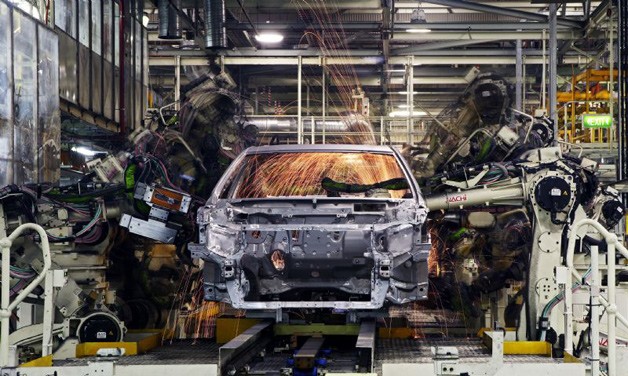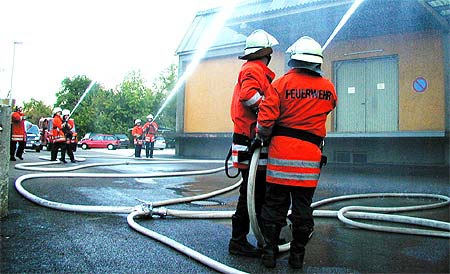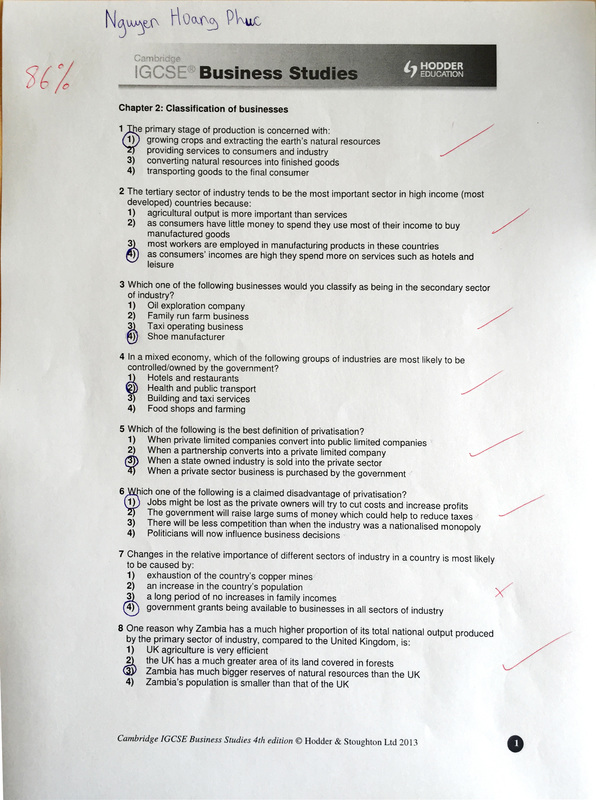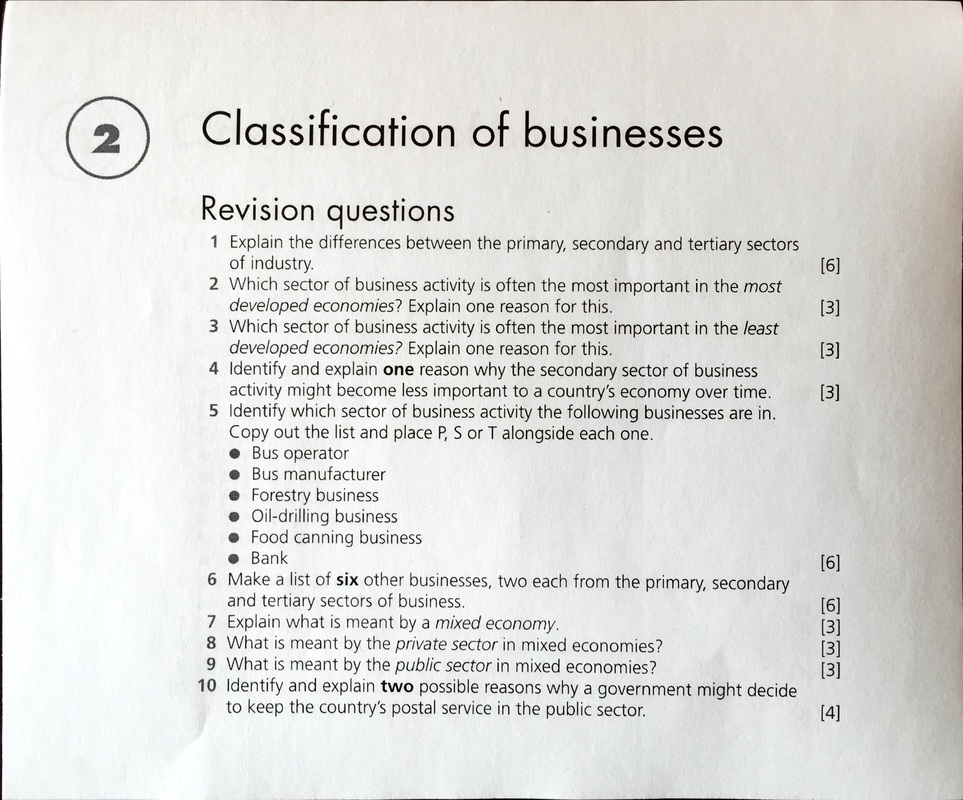PrimaryThe primary sector uses the natural resources on the planet to produce raw materials that can be used by other businesses.
|
SecondaryThe secondary sector manufactures products and goods using the raw materials provided by primary sector.
|
TertiaryThe tertiary sector provides services to consumers.
|
Usually the 3 sectors are compared by:
- Percentage of the country's total number of workers employed in each sector or.
- Value of output of goods and services and the proportion this is of total national output.
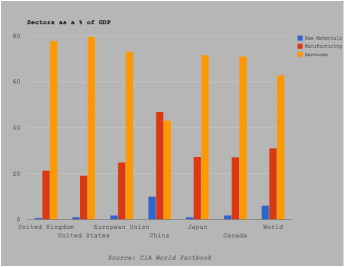
De-industrialization: The decline in manufacturing or secondary sector of industry.
Some reasons that cause changes in sector importance:
Some reasons that cause changes in sector importance:
- Sources of some primary products become depleted.
- Most developed economies are losing competitiveness in manufacturing goods.
- As country's total wealth increases and living standard rise, consumers spend a higher proportion of their incomes on services than on primary products.
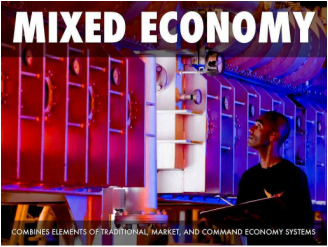
Mixed economy: Both private sector and public sector:
- Private sector: Businesses not owned by government. They make decisions on what to produce.
- Public sector: Owned by government, controlled businesses and organizations.
- health
- education
- defense
- public transport
- water supply
- electricity supply

Privatization: -When a state owned industry is sold into the private sector.
ANSWERS:
1. -Primary: Uses the natural resources to produce raw materials.
-Secondary: Using the raw materials of industry manufactures goods.
-Tertiary: Provides services to consumers.
2. Tertiary is the most important because most developed countries have many rich citizens, in which they can spend their incomes for services such as massage, spa,etc.
3. Primary is the most important because least developed countries will tend to have less probability to spend their incomes for services, they spend more on the primary sector.
4. It is because there is less manufacturing industry, lots of products were imported from other countries so we don't need much workers in the secondary sector.
5. -Bus operator: Tertiary
-Bus manufacturer: Secondary
-Forestry business: Primary
-Oil-drilling business: Primary
-Food canning business: Secondary
-Bank: Tertiary
6. -Primary: wood-cutting and coal mining
-Secondary: baking and house building
-Tertiary: mechanic and police officer
7. Mixed economy has both private sector and public sector
8. Private sector: Businesses not owned by government, they make decisions on what to produce.
9. Public sector: Owned by government and controlled businesses and organizations.
10.
1. -Primary: Uses the natural resources to produce raw materials.
-Secondary: Using the raw materials of industry manufactures goods.
-Tertiary: Provides services to consumers.
2. Tertiary is the most important because most developed countries have many rich citizens, in which they can spend their incomes for services such as massage, spa,etc.
3. Primary is the most important because least developed countries will tend to have less probability to spend their incomes for services, they spend more on the primary sector.
4. It is because there is less manufacturing industry, lots of products were imported from other countries so we don't need much workers in the secondary sector.
5. -Bus operator: Tertiary
-Bus manufacturer: Secondary
-Forestry business: Primary
-Oil-drilling business: Primary
-Food canning business: Secondary
-Bank: Tertiary
6. -Primary: wood-cutting and coal mining
-Secondary: baking and house building
-Tertiary: mechanic and police officer
7. Mixed economy has both private sector and public sector
8. Private sector: Businesses not owned by government, they make decisions on what to produce.
9. Public sector: Owned by government and controlled businesses and organizations.
10.
- To control things that customers send, and consider is it okay to send or not.
- Private companies will only think about money so they will do anything to produce money instead of caring for customers.

